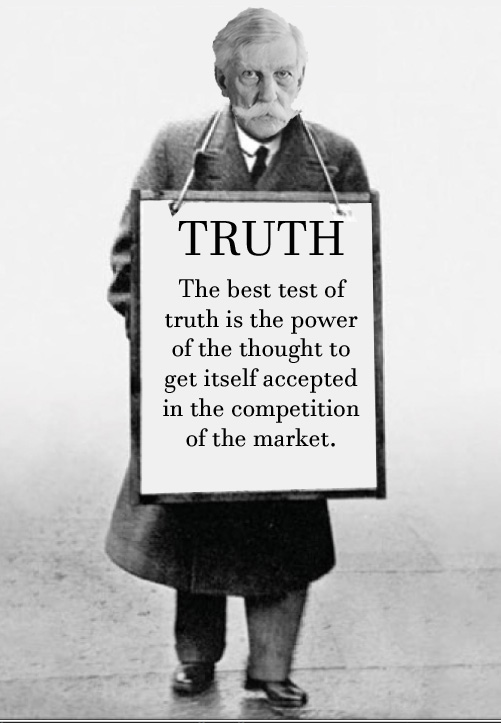Summary:
I may have scoffed in the past at the notion of "the marketplace of ideas" but I am coming around to think that maybe it's not such a bad metaphor. Back in the days of primitive economy, families, clans, tribes produced and consumed their own subsistence. If a surplus was produced beyond what was to be set aside for contingencies, it might be given as a gift to a neighboring group, setting up the obligation of a reciprocal gift.Eventually, gift exchange was supplemented and/or supplanted by barter. What was traded, though, was still the superfluous produce after the group had met its own needs. Production for markets only gradually encroached upon production for need that incidentally produced a surplus. In societies dominated by capital, superfluous production became a condition for
Topics:
Sandwichman considers the following as important:
This could be interesting, too:
I may have scoffed in the past at the notion of "the marketplace of ideas" but I am coming around to think that maybe it's not such a bad metaphor. Back in the days of primitive economy, families, clans, tribes produced and consumed their own subsistence. If a surplus was produced beyond what was to be set aside for contingencies, it might be given as a gift to a neighboring group, setting up the obligation of a reciprocal gift.Eventually, gift exchange was supplemented and/or supplanted by barter. What was traded, though, was still the superfluous produce after the group had met its own needs. Production for markets only gradually encroached upon production for need that incidentally produced a surplus. In societies dominated by capital, superfluous production became a condition for
Topics:
Sandwichman considers the following as important:
This could be interesting, too:
Robert Vienneau writes Austrian Capital Theory And Triple-Switching In The Corn-Tractor Model
Mike Norman writes The Accursed Tariffs — NeilW
Mike Norman writes IRS has agreed to share migrants’ tax information with ICE
Mike Norman writes Trump’s “Liberation Day”: Another PR Gag, or Global Reorientation Turning Point? — Simplicius
I may have scoffed in the past at the notion of "the marketplace of ideas" but I am coming around to think that maybe it's not such a bad metaphor. Back in the days of primitive economy, families, clans, tribes produced and consumed their own subsistence. If a surplus was produced beyond what was to be set aside for contingencies, it might be given as a gift to a neighboring group, setting up the obligation of a reciprocal gift.
Eventually, gift exchange was supplemented and/or supplanted by barter. What was traded, though, was still the superfluous produce after the group had met its own needs. Production for markets only gradually encroached upon production for need that incidentally produced a surplus. In societies dominated by capital, superfluous production became a condition for necessary production.
In such societies, "superfluous" speech -- advertising, propaganda, entertainment -- also became a condition for communication of "truth" -- or at least "news." Thus, the metaphor of the "marketplace of ideas" is not so outlandish -- it just doesn't mean what Oliver Wendell Holmes presumably thought it meant. There is no "one man, one voice" competition. Instead, monopolies of word and image determine what will be heard and seen the most. As A. J. Liebling wrote, "freedom of the press is limited to those who own one."
Social media has created the illusion that anybody can become a celebrity in a viral heartbeat, as if the circuits of social media amplification were not as dominated by advertising, propaganda, and entertainment as any television network. What the competition of the market tests, though, is not the "truth" of ideas but their marketability. That is to say, their superfluity relative to truth.

